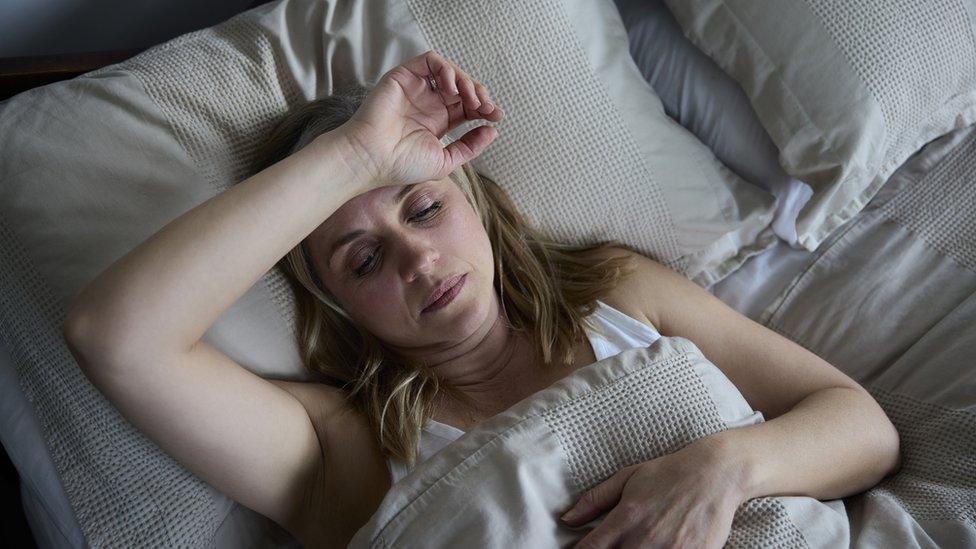End of Covid-19 booster programme is alarming, says former actress
- Published
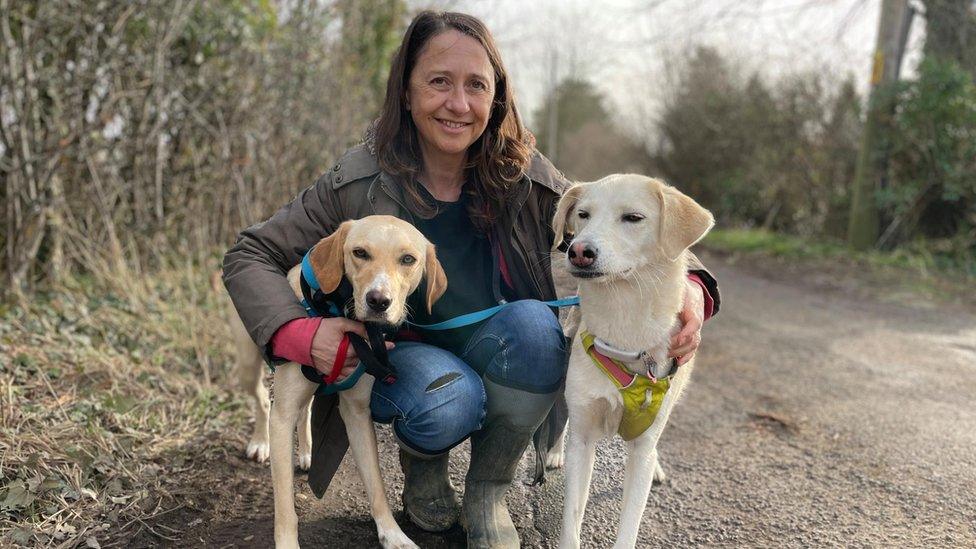
Sarah Steven became clinically vulnerable six months into the pandemic after being diagnosed with breast cancer
A woman classed as clinically vulnerable has said she is concerned about the end to the Covid-19 booster vaccination programme.
Sarah Steven, from Buckinghamshire, believes people "need vaccines to protect them all year round because there are no mitigations in place".
The former actress was shielding between October 2020 and March 2022 while being treated for breast cancer.
The Department of Health and Social Care was approached for a comment.
Until Wednesday, certain groups of people could book a booster jab via the NHS, external, but they must now wait for the next seasonal campaign.
People who develop new health conditions or start treatments that weaken their immune system may be able to receive a vaccine earlier.
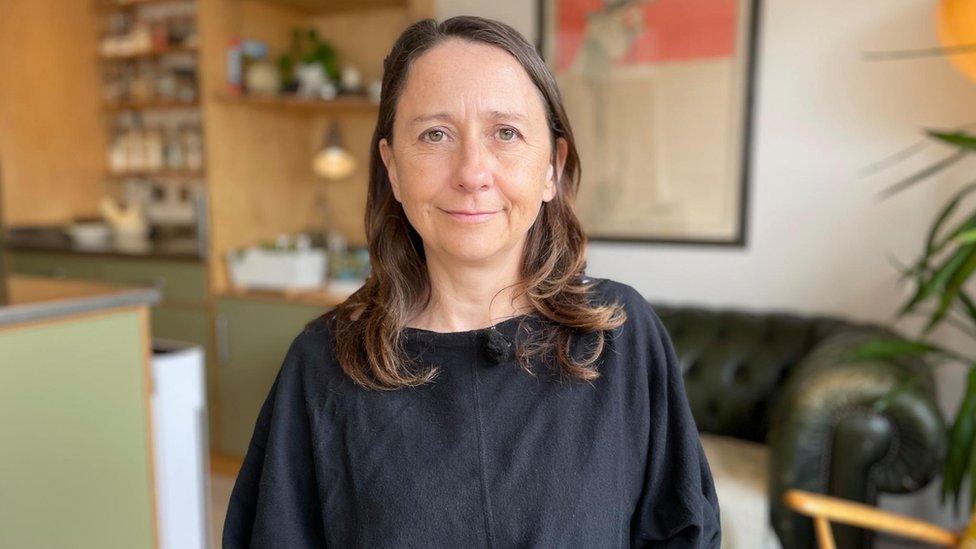
Sarah Steven said the clinically vulnerable "need vaccines"
"It is pretty alarming that we are going to put Covid vaccination into the annual booster pot like flu," said Ms Steven, who has appeared in ITV's Grantchester and in theatre, but is also an advocate for Clinically Vulnerable Families, external.
"There is no clean air policy in schools, there's no mask policy in healthcare and work offices are a free-for-all.
"Learning to live with the virus does not mean just pretend it has gone away."
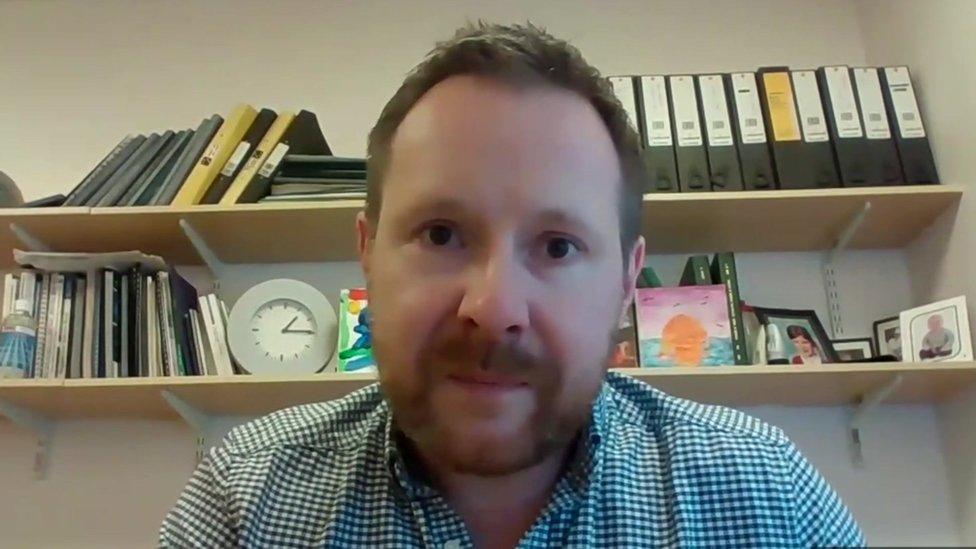
Stephen Griffin from the Independent SAGE group is concerned stopping the vaccine programme will put vulnerable people at risk
Prof Stephen Griffin, co-chair of the Independent SAGE group which provides the UK government with scientific advice, also criticised the decision to end the programme.
The academic, who lectures in cancer virology at Leeds University of Medicine, said the policy to live with Covid was discriminatory to vulnerable people who "are being put [at a] disadvantage".
Mr Griffin explained there was a "dangerous narrative where it is acceptable to be infected [in order to] become immune to the thing that just infected them".
"We are unfortunately relying on population-scale infection to promote short-lasting immunity [which] involves more harm than a wider scale vaccine programme," he said.

Follow East of England news on Facebook, external, Instagram, external and X, external. Got a story? Email eastofenglandnews@bbc.co.uk, external or WhatsApp 0800 169 1830
Related topics
- Published15 January 2024
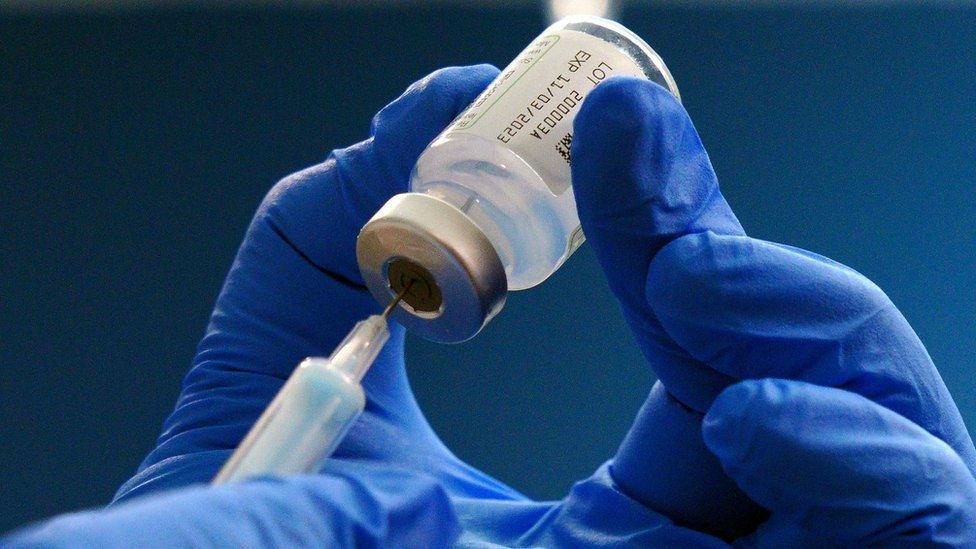
- Published5 October 2023
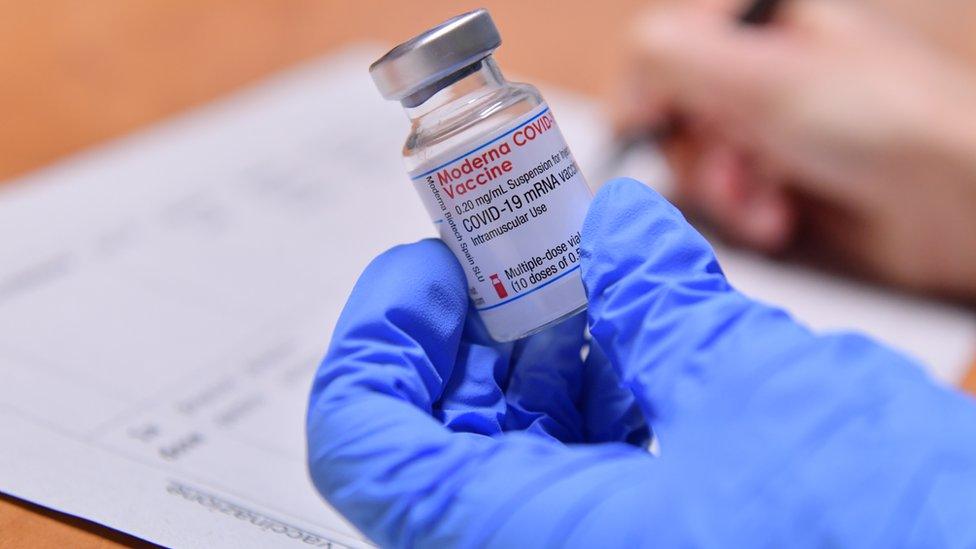
- Published2 October 2023
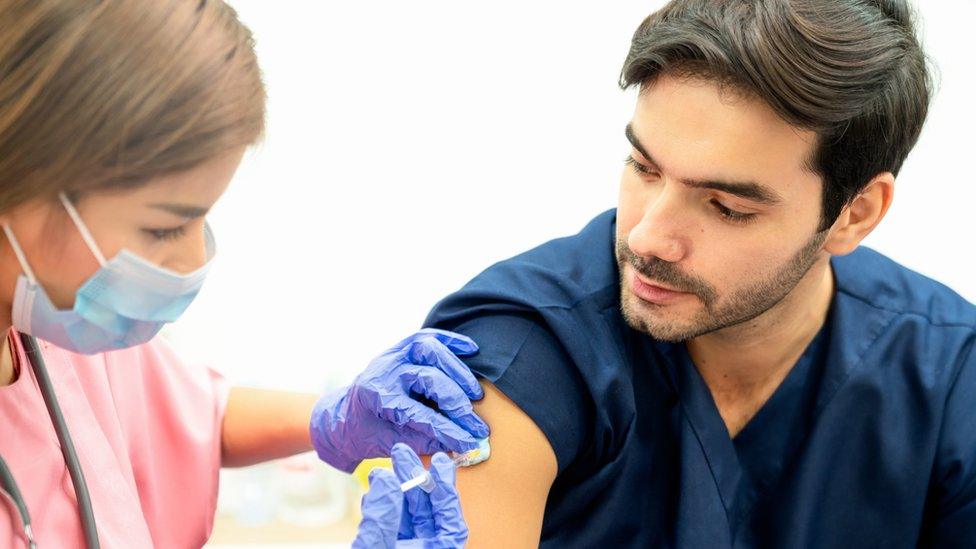
- Published17 December 2023
